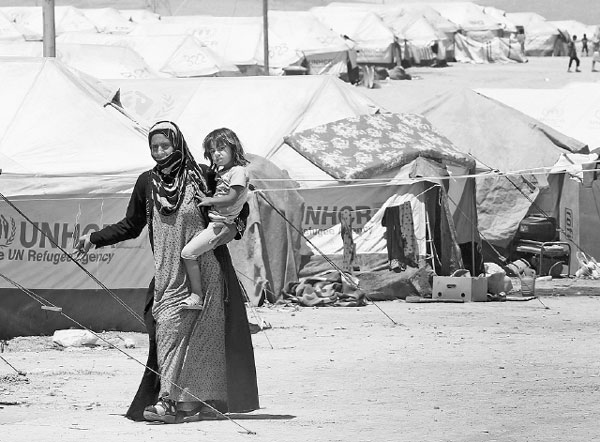Iraq reaches breaking point
Updated: 2014-07-29 06:52
By Reuters in Baghdad (China Daily)
|
||||||||
Salman Khaled has lived through Baghdad's sectarian disintegration; with Iraq now splintering into Shiite, Sunni Arab and Kurdish regions, he says this time the survival of the country is at stake.
"Things are really tense and it could get worse," said the 23-year-old Sunni Muslim student. "If the politicians continue as they are doing now, we are on the path to separation."
When Khaled's father was shot dead by Shiite gunmen at the height of Baghdad's religious bloodshed seven years ago, his family took shelter in a Sunni neighborhood of the capital.
|
A woman, who fled from the violence in Mosul, walks with her child inside the Khazer refugee camp on the outskirts of the Kurdish city of Arbil in Iraq on Sunday. Provided by Reuters |
They made their flight as violence forced apart communities that once mingled in the city. Today the family lives in the Adhamiya district, close to the Abu Hanifa mosque where one of Sunni Islam's most influential theologians is buried.
At his home on an unpaved street, Khaled said he still feels secure in Adhamiya but he rarely goes to the rest of Baghdad where blast walls and security checkpoints hint at the fate of a fractured Iraq.
Iraq's latest - and gravest - crisis erupted when mostly Sunni fighters swept through the north last month. Now the jihadist black flag flies over most of the country's Sunni Arab territory.
Kurdish forces, exploiting the chance to take another step toward independence, seized the city of Kirkuk and nearby oil fields, leaving the Shiite-led government controlling only the capital region and the mainly Shiite south.
The government is trying to reverse this de facto, three-way split of the country, but its reliance on Shiite militia and volunteers rather than the ineffectual national army has deepened sectarian mistrust without pushing the rebels back.
Three states
Across Baghdad, a Sunni living in the Shiite area of Maalef, cut off from the rest of the city by a checkpoint where non-residents are turned back, said life there had become unbearable for those who do not belong to the majority Shiite community.
"The Sunnis all want separation now," said the 37-year-old electrician, who asked not to be named for his security. "Facts on the ground tell you this will be the final result. On both sides now you have extremists who don't want to get along".
Kurdish politician Hoshiyar Zebari, who still staunchly advocates Iraqi unity, described the new geography. "The country is divided literally into three states, the Kurdish state, the black state (under Sunni insurgents) and Baghdad," he said.
New government
Iraq's political elite and world powers have concentrated on the formation of a new government as the best way to save the country, but such a push may come too late.
"It's probably the most serious crisis that Iraq has faced since its inception as a country," said Ali Allawi, a minister in two governments after the US-led invasion that toppled Saddam Hussein in 2003. "It's the first time that the territorial integrity of the state as a whole is in question."
Iraq's heritage stretches back to early civilization on the Tigris and Euphrates rivers, but the modern state is a colonial fusion of the Ottoman provinces of Basra, Baghdad and Mosul following the empire's disintegration after World War I.
Sunni and Shiite Arabs have little to unite them, Allawi said, while for most Kurds, non-Arabs who were persecuted under Saddam, the idea of an Iraqi nation is even more fanciful.
"Iraq is a failed state," said Masrour Barzani, head of the Kurdish region's National Security Council. "It is a fabricated state. It has never been a state by choice by the people or the components of this country. They were forced to live together". It is a fabricated state. It has never been a state by choice by the people or the components of this country. They were forced to live together."
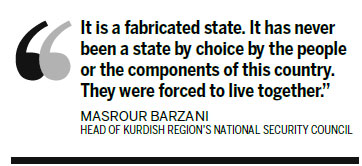
(China Daily 07/29/2014 page11)

 Amateur team aims for great heights
Amateur team aims for great heights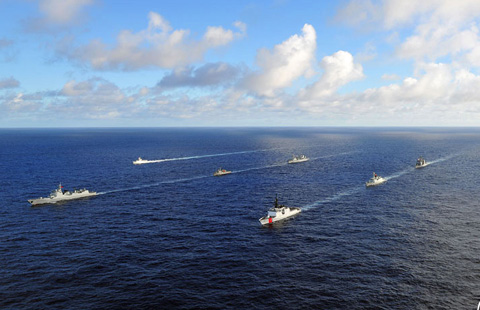
 Chinese naval vessels participate in RIMPAC drill
Chinese naval vessels participate in RIMPAC drill
 Rose Li earns pageant title in Houston
Rose Li earns pageant title in Houston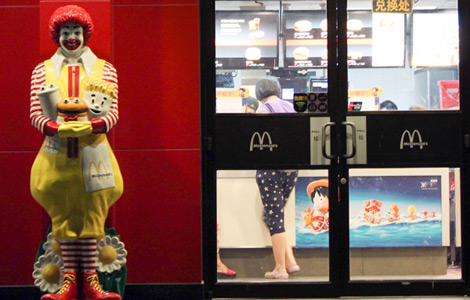
 Harsher safety measures urged amid scandal
Harsher safety measures urged amid scandal
 Young ambassadors
Young ambassadors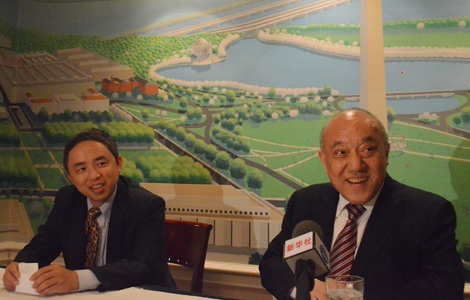
 Wanxiang finds success in US
Wanxiang finds success in US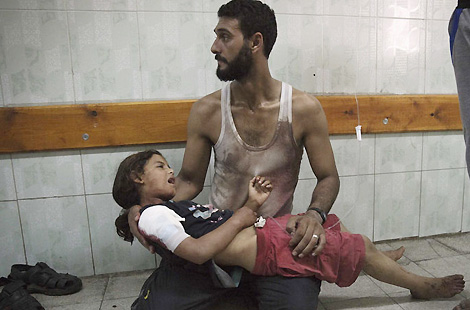
 The world in photos: July 21 - July 27
The world in photos: July 21 - July 27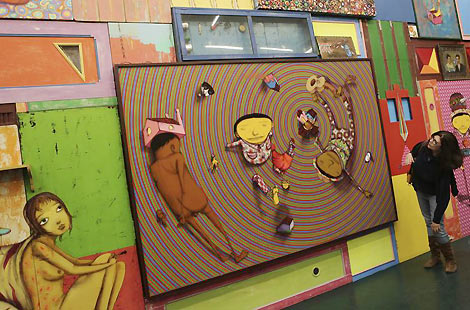
 Twin artists 'Os Gemeos' hold exhibition in Sao Paulo
Twin artists 'Os Gemeos' hold exhibition in Sao Paulo
Most Viewed
Editor's Picks

|

|

|

|

|

|
Today's Top News
Prudence urged over US-China solar dispute
US visa delays likely to continue
McDonald's fishing for supplier
China's FDI in US set for increase
OSI group to fund food safety
Glitch delays visas for US-bound students
A musical spoof of the Clinton years
Good times beckon for Latin American ties
US Weekly

|

|
